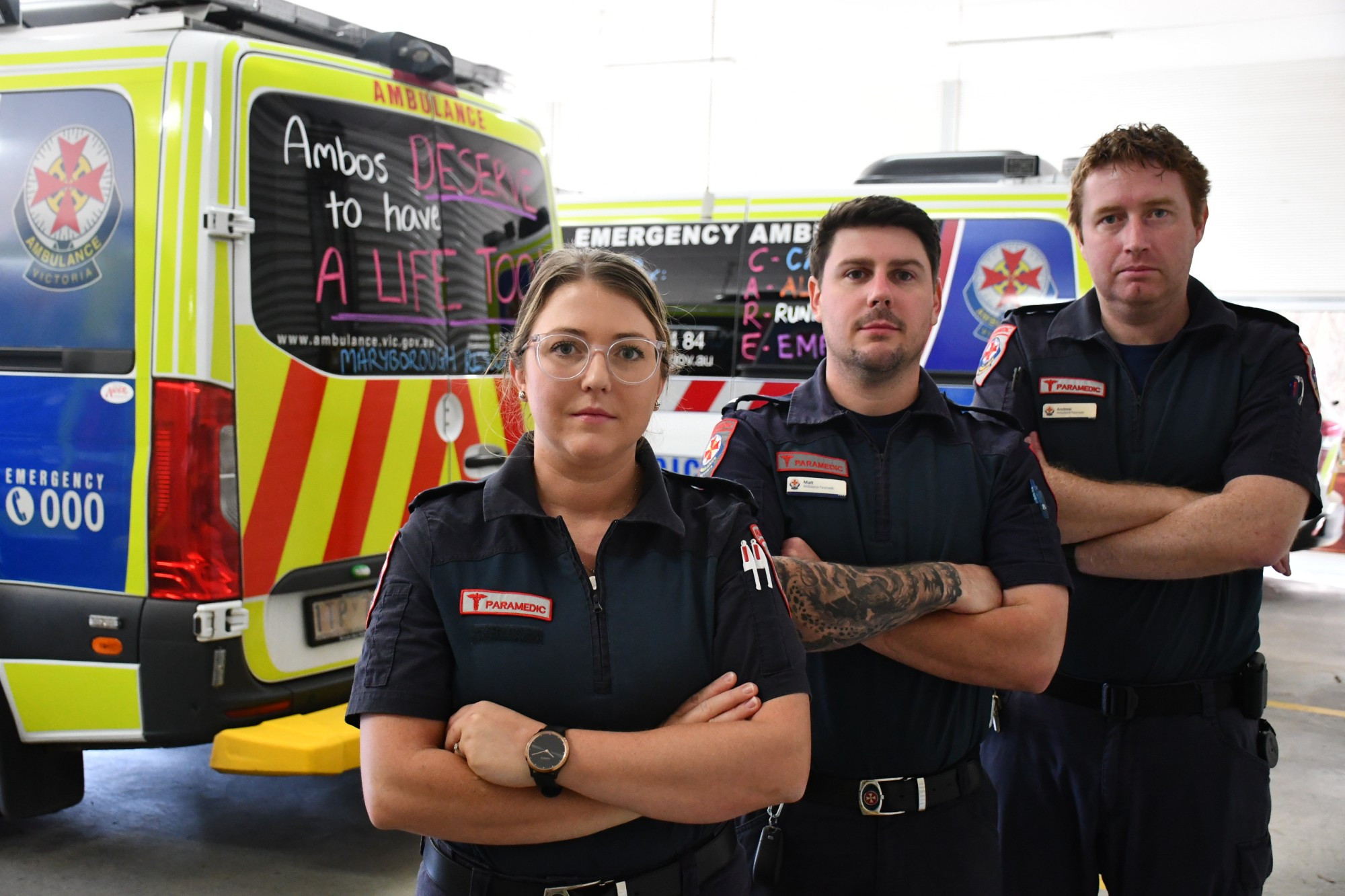General News
21 March, 2024
Local ambos take action
Sometimes working up to 14 hours a day, mother of three, Sherridyn Coleman is frustrated with the impact forced overtime has on her family — who she says are “suffering” as a result. Ms Coleman’s grievances are shared by many in her field...

Sometimes working up to 14 hours a day, mother of three, Sherridyn Coleman is frustrated with the impact forced overtime has on her family — who she says are “suffering” as a result.
Ms Coleman’s grievances are shared by many in her field.
She is among thousands of paramedics in the state who have chalked campaign slogans on ambulances, stopped collecting billing details from patients, and are also not undertaking any hospital duties.
It forms part of the Victorian Ambulance Union’s (VAU) industrial action, which launched this week, following protracted negotiations around a new enterprise agreement with Ambulance Victoria (AV).
VAU presented suggested changes, as a log of claims, to AV in February last year — key suggestions included wage increases, improvement to end of shift management, and appropriate overtime entitlements.
It’s been 13 months since discussions commenced — the union has conducted more than 70 meetings with the emergency service’s representatives and yet, according to Maryborough paramedic and VAU delegate Andrew Jochs, the two parties haven’t reached an acceptable resolution.
“We’ve had 77 meetings but we are, on a lot of the key issues, quite a distance apart which has left us with no choice but to start taking action,” he said.
According to an independent survey conducted by Swinburne and RMIT universities into the ambulance workforce, the number of paramedics looking at leaving their job in the next year has climbed to one in five.
“I think that’s because of a [lack] of work-life balance,” Mr Jochs said.
“At the moment we are doing an enormous amount of forced overtime — which is where we get a job towards the end of our shift. AV’s dispatch system is misappropriating the resources to cases, to the point where specialist paramedics are attending stubbed toes and sore fingers.
“Someone that’s had a cough for a week for example, will come through as an emergency short of breath and that triggers an emergency response, which means that crew who might be 20 minutes from finishing are now obliged to attend because it’s been coded as an emergency and gets a lights and sirens response.”
While Mr Jochs said it was important to inform the community about the industrial action, he also reiterated that they won’t be impacted.
“Nothing’s going to change for patients — they will come first,” he said.
“The care we provide to patients and our response isn’t going to change.
“When we explain what some of the issues are to [community members], everyone’s supportive.
“Most people in their jobs will go home when their shift finishes, to their family. They’ll pick up their kids from daycare, and they’ll have dinner with their family. But when we are working 10, 12, and 14 hour shifts and forced overtime at the end of that, we end up missing so many things.”
For Mr Jochs’s colleague, Ms Coleman, that’s the hardest part.
This week alone, she has already missed family dinners and putting her children to bed.
“Not finishing on time means that I don’t get home on time and when I do, my kids are sleeping — and then it’s nearly a full 24 hours before I get to see them again,” Ms Coleman said.
“I started [as a paramedic] in Maryborough in 2017. I do love my job and I love helping people. It’s just that at the minute, with the overtime, my family’s suffering.”
Alongside that emotional impact, there are also physical consequences of working unsociable and long hours according Ms Coleman.
“Sometimes you’re meant to do a 10 hour shift but that goes up by another four hours, then you’ve got to get up early and go back to work and you do the same thing again,” she said.
“At the end, you’re exhausted and you’re running on empty for the rest of your shift for that week.”
The ongoing industrial action is expected to continue until AV accepts VAU’s key claims — with Ms Coleman expressing her disappointment at the rejection faced by the union.
“It’s upsetting and it’s quite frustrating that AV can’t come to an agreement,” she said.
“Especially after everything we've done and gone through over the last couple of years with COVID and working through that — it’s a punch to the stomach that they can’t help us with end of shift management.”
